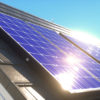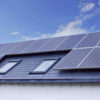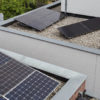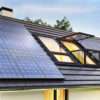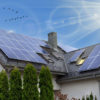Heating and cooling constitute a significant part of any home’s operations, and therefore its running costs. But which of the two is more represented in power bills across the country is a matter of some debate.
Even though most think the air conditioner during the summer months is mostly at fault, your winter billings may in fact be higher. Heating is often overlooked from the cost equation here because of the different ways in which it is often achieved.
While cooling is always through electricity, homes can be heated through non-ducted gas burners which continue to be very popular even today. But, should this really be the case, especially since better options are available?
The Issue With Ducted Gas and Hydronic Heaters
A ducted gas heater is simple enough. They take in cold air, heat it by burning natural gas or LPG, and then distribute it throughout a building through air ducts.
A gas hydronic system on the other hand heats up water and sends it across pipes which act as radiators inside rooms. The advantages of a ducted gas/hydronic system include centralized heating and distribution, fast heating and run on gas that’s fairly cheap.
Even though gas systems are fairly reliable and affordable to run, they do have some drawbacks. Firstly, your residential area will need a gas line for them to run. This might rule out gas heaters for residents in rural areas or homes that didn’t come with a gas line.
Next, ducted gas systems can lead to carbon monoxide (CO) poisoning if installed improperly as they burn fuel to heat the air. Since CO is invisible and odorless, it can be fatal if inhaled in large quantities.
Finally, even though natural gas is indeed cheaper than electricity, the burners themselves aren’t very efficient at turning it into heat, at least not as much as reverse cycle systems are.
Even the best ducted gas systems are about 85% efficient. Reverse cycle air conditioners are typically 300%-600% efficient, which means they create three to six times more heat from every unit of electricity they consume.
In other words, even though gas burners run on cheap fuel, they may end up costing you a lot more than a reverse cycle air conditioner. For example, for a large sized dwelling of 220 meter square in Victoria, a four star ducted gas system can cost around $1,445 per year. A four star reverse cycle air conditioner on the other hand will cost $1,360.
How Reverse Cycle Air Conditioning Can Help
As the name would suggest, a reverse cycle air conditioner can work both ways. Also known as heat pumps they can cool down rooms during hotter days and warm them up when it gets cold.
Reverse cycle ACs work by extracting heat from the surrounding air outside a building. They do so by running a cold refrigerant gas through an external coil.
As the refrigerant heats up, it’s brought inside to the indoor unit where it’s used to heat the ambient air. When switched to cooling mode, the cycle simply reverses itself.
Such a system has very obvious benefits. You can heat up or cool your house with just one unit, something that cannot be done with gas burners.
They are also easier to control. Most come with smart sensors and monitoring systems that can turn the AC on and off at preset times, or when sufficient temperatures are reached.
We’ve already touched on the efficiency and savings advantage that comes with reverse cycle ACs, but when paired with a solar power system, their operation can become virtually free of cost.
Solar Powered Air Conditioning Can Help You Save Big
Home heating and cooling continue to be the biggest energy hogs, accounting for 40% of the average Australian household electricity consumption. As reverse cycle ACs are becoming more popular and affordable, now is the right time to consider replacing your old gas-guzzlers with them.
Even so, there are many variables that need to be considered before purchasing. Reverse cycle ACs can be more expensive than competing options for the same energy rating, so they will take longer to pay themselves off. It’s also a good idea to have your home inspected to determine ways to save heat loss through insulation.
As Australia’s leading solar power search engine, we can help you find options best suited to you. We know that solar power has a number of use-cases and finding out how it might help you can be a daunting task.
We will be glad to help you understand solar energy better and find the best possible solutions for your specific needs. Feel free to contact us for more information, or check out how we work.

